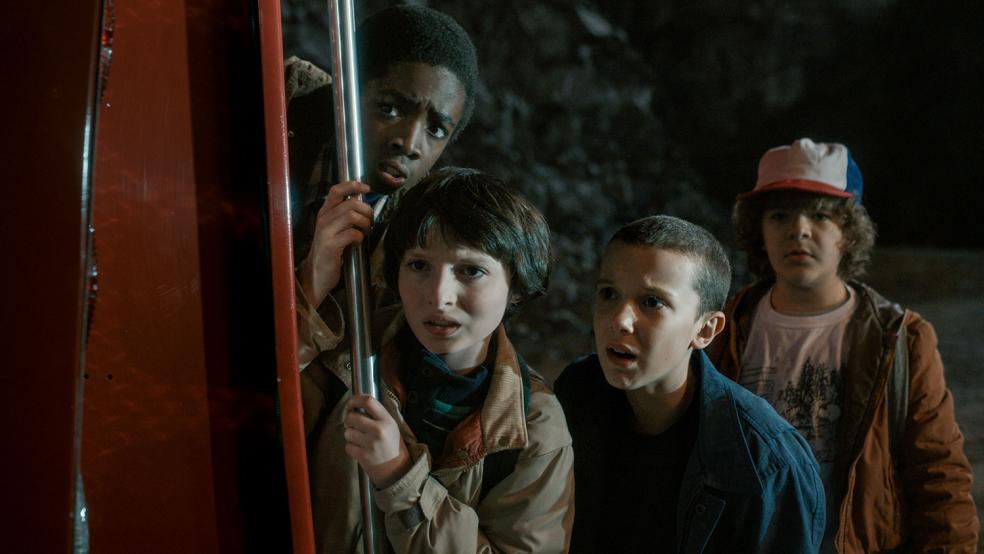The idea that Netflix can produce an acclaimed television show is no longer revolutionary, but the critical reaction to Stranger Things, the new sci-fi horror show featuring Winona Ryder as its most recognizable face, is noteworthy.
Fans and critics aren’t fawning over the plot (which is no more than decent) or the characters (who are pretty good). They’re responding to the tone of the show — which feels like a 35-year-old Steven Spielberg adapted a great lost Steven King novel with a score by John Carpenter — more than anything else.
Related: YouTube Wants to Step Up Its Content Game, but Is It the Right Move?
Stranger Things feels like watching movies on cable on a rainy afternoon in 1985. The show’s flaws even feed into this feeling; few of those ‘80s sci-fi films were perfect, and every ill-advised character decision or lapse in narrative logic just feeds the sense that you are watching something from a different era.
While this all could easily be mistaken for a cheap and manipulative gimmick (“Weaponized Nostalgia,” as my brother puts it), it is the panache and charm with which the show’s creators, the Duffer brothers, pull off this balancing act that makes the show so compulsively watchable.
On a larger scale, this is another (extremely obvious) example of the way in which the generation that grew up watching the films of Spielberg, George Lucas and their imitators have quietly taken control of Hollywood.
The movie business has been controlled by Baby Boomers since the 1970s. Spielberg’s generation, the one chronicled in Easy Riders and Raging Bulls, was the first generation to graduate from film school and treat directing as an artistic job and not merely as being the foreman of a construction project. Directors like Francis Ford Coppola, Martin Scorcese and Brian De Palma came roaring into studios with visions of recreating Hollywood as an artistic venture. Speilberg and Lucas, the kid brothers of the movement, had more commercial sensibilities, and it was ultimately their approach that prevailed in the 1980s and has largely dominated ever since.
That control was challenged by the Sundance generation that came around in the ‘90s, with directors like Quentin Tarantino who gave the tree a little shake. Ultimately, though, they were too prickly and inconsistent to become dominant industry forces.
Related: Why Hollywood No Longer Saves Its Biggest Movies for Summer
But what market forces couldn’t do, the simple passage of time has achieved. Despite their best efforts, the Boomers can’t hold the reins forever, and it is largely the generation just behind Tarantino, those who adored Spielberg’s Hollywood rather than rebelling against it, that have come to power.
Consider J.J. Abrams, only three years Tarantino’s junior. Both men share an excitable, infectious enthusiasm for the movies they love (particularly the disreputable films of their teen years). Both men pepper their work with nonstop references to those films. But where Tarantino wants to rattle the cage, Abrams wants to blow your socks off.
To make sure Star Wars: The Force Awakens worked, and more importantly, to ensure that any and all future Star Wars films would really succeed, Abrams knew he needed his generation on board — which is why it was crucial to bring back Mark Hamill, Carrie Fisher and Harrison Ford. Lucas’ ill-fated prequels were financially successful and did do well with children, but they were quickly forgotten by those children, rather than obsessed over and held dear the way the original trilogy had been. Kids may still be the driving force in entertainment spending, but Gen Xers are now the parents who buy the movie tickets (and pay for the Netflix account). Star Wars needed to be a hit with those parents.
Sam Esmail, showrunner for USA’s groundbreaking series Mr. Robot, is another example. If the touchstones for Abrams and the Duffers is the childhood of the Xers, Esmail focuses on their college experience, mixing “Screw the man! Capitalism and religion are BS!” diatribes with deafening shout-outs to such midnight movie icons as David Fincher, Stanley Kubrick and David Cronenberg.
On a similar note, AMC’s Preacher is having decent success adapting the quintessential graphic novel of the ‘90s, successfully hitting the vibe of rifling through your big brother’s comic collection.
Related: Mr. Robot Returns: Put on the Mask, Burn the Money
Even television’s (and perhaps pop culture’s) preeminent flagship, Game of Thrones, is very much a show for the grown-up versions of the kind of kids portrayed in Stranger Things: A Dungeons & Dragons campaign for adults tired of having their intelligence insulted by fantasy. Its showrunners, David Benioff and D.B. Weiss, are both 45.
There is an easy trap here: to say that Hollywood’s mining of nostalgia is proof of creative bankruptcy. But it is worth pointing out that the works of both Spielberg and Lucas were heavily indebted to the entertainment of their childhoods as well, with both directors openly acknowledging the inspiration and influence of the Flash Gordon and Alan Quatermain serials on Star Wars and Indiana Jones.
So while some cry that there is nothing new under the sun, the rest of us can enjoy the fruits of the first sea change in Hollywood in at least a decade. As the Boomers fade out and Millennials wait in the wings, Xers can enjoy their brief moment in the sun. Maybe they’ll change Hollywood…Stranger Things have happened.




